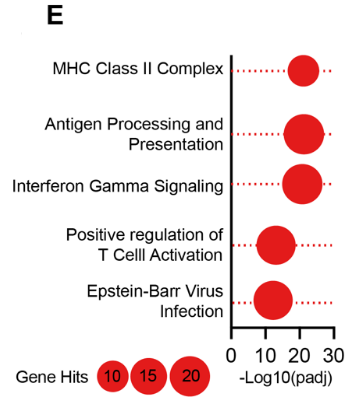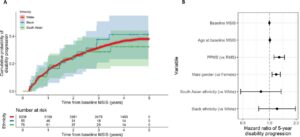
“Patient iPSC models reveal glia-intrinsic phenotypes in multiple sclerosis.”
Benjamin L. L. Clayton, et al. – Case Western Reserve University School of Medicine.
Using iPSC lines derived from patients with all 3 subtypes of MS, this study found that patient astrocytes are predisposed to take on pathological phenotypes. Patient-derived astrocytes show elevated expression of genes relating to inflammatory signaling and responding to EBV, despite never being exposed to the corresponding environmental triggers. Additionally, they found that lines from patients with PPMS produced fewer mature oligodendrocytes. These results suggest that glia in people with MS have an elevated baseline neuroinflammatory profile, leaving them more vulnerable to developing MS following triggering insults.




